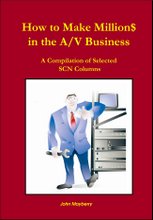
NJ Teen Unlocks IPhone From AT&T Network
By PETER SVENSSON 08.24.07, 11:17 AM ET
AP NEW YORK -
AP NEW YORK -
A teenager in New Jersey has broken the lock that ties Apple's iPhone to AT&T's wireless network, freeing the most hyped cell phone ever for use on the networks of other carriers, including overseas ones.
George Hotz, 17, confirmed Friday that he had unlocked an iPhone and was using it on T-Mobile's network, the only major U.S. carrier apart from AT&T that is compatible with the iPhone's cellular technology.
While the possibility of switching from AT&T to T-Mobile may not be a major development for U.S. consumers, it opens up the iPhone for use on the networks of overseas carriers.
"That's the big thing," said Hotz, in a phone interview from his home in Glen Rock.
The phone, which combines an innovative touch-screen interface with the media-playing abilities of the iPod, is sold only in the U.S.
"That's the big thing," said Hotz, in a phone interview from his home in Glen Rock.
The phone, which combines an innovative touch-screen interface with the media-playing abilities of the iPod, is sold only in the U.S.
Calls to AT&T and Apple for comment were not immediately returned. The hack, which Hotz posted Thursday to his blog, is complicated and requires skill with both soldering and software. It takes about two hours to perform. Since the details are public, it seems likely that a small industry may spring up to buy U.S. iPhones, unlock them and send them overseas.
"That's exactly, like, what I don't want," Hotz said. "I don't want people making money off this."
He said he wished he could make the instructions simpler, so users could modify the phones themselves.
"But that's the simplest I could make them," Hotz said.
The modification leaves the iPhone's many functions, including a built-in camera and the ability to access Wi-Fi networks, intact. The only thing that won't work is the "visual voicemail" feature, which shows voice messages as if they were incoming e-mail.
Hotz collaborated online with four other people, two of them in Russia, to develop the unlocking process.
"Then there are two guys who I think are somewhere U.S.-side," Hotz said. He knows them only by their online handles.

